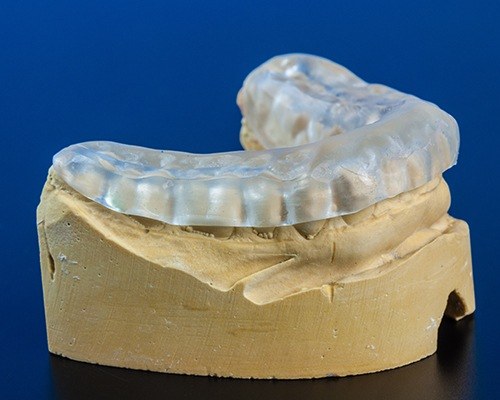Diagnosing TMJ Disorder – Las Vegas, NV
Finding the Root of Your Pain

From a sudden injury to misaligned teeth to involuntary teeth grinding to arthritis, there are many different reasons why you might have developed a TMJ disorder. But if we don’t understand the exact causes behind your symptoms, it may be difficult for us to treat your condition. That’s why it’s so important for us to be able to diagnose your TMJ disorder through a series of examinations and tests that will give us a clearer understanding of your situation – as well as what we need to do to help relieve your pain. Get in touch with iSleepSolutions today to start the process; the sooner we begin, the sooner you can escape the constant discomfort in your jaw!
What’s the Process for Diagnosing a TMJ Disorder?

The first step is to carefully examine your complete health history. Dr. West will need to know about any injuries, traumas, procedures, or conditions that might have damaged the TMJ. For example, if you have bruxism, the stress of your teeth grinding together could eventually lead to a TMJ disorder. After that, we’ll need to look at the TMJ itself as well as nearby bones and the muscles in your jaw, mouth, face, neck, and head; if we note any pain or tenderness in these areas, it could point to a problem. We may also ask you to move your jaw so that we can see if it becomes locked or otherwise has limited motion. Be sure to tell us if you notice an unusual noise when you open or close your jaw.
There are a few different tests we might use to help our diagnosis. We may take X-rays of the face, joint, and teeth, or we could examine the disc of the jaw joint itself with an MRI (magnetic resonance imaging) scan. Sometimes a CT (computed tomography) scan might be required to give us a more detailed view of the bones. Depending on your situation, we may or may not need to use all of these tests to narrow down your specific issues.
What Happens If We Find a TMJ Disorder?

While learning that you have a TMJ disorder may be alarming at first, a successful diagnosis can be considered a good thing. It means that we’ve narrowed down the source of your pain and can begin exploring different methods of relief. For milder cases, you may be able to treat your symptoms on your own by applying an ice pack as needed, taking over-the-counter pain medicine, limiting your diet to softer foods, and performing jaw stretches recommended by Dr. West. Of course, some cases will require professional intervention, and most of the time that means wearing a customized oral appliance. Some appliances might hold the jaw in a certain position to relieve pressure on the TMJ while others may be intended to prevent the teeth from grinding together (and thus protect the joint by extension). Surgery will only be recommended in the most severe cases.
